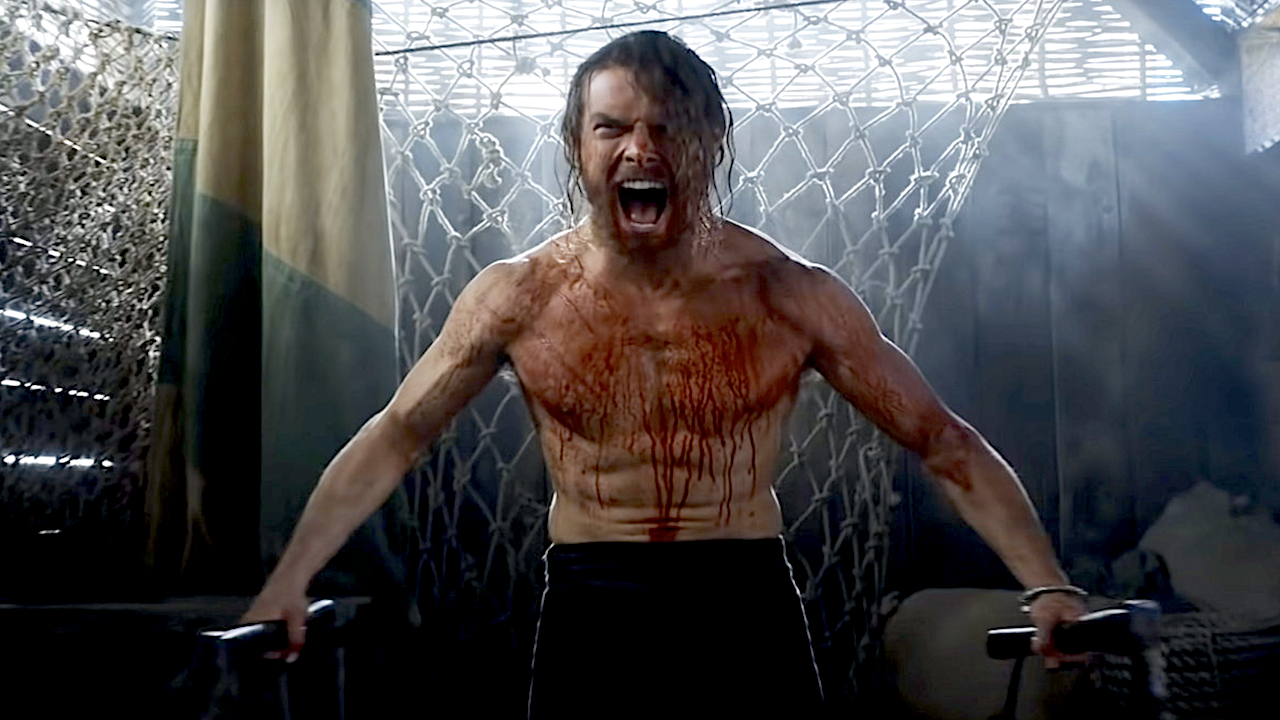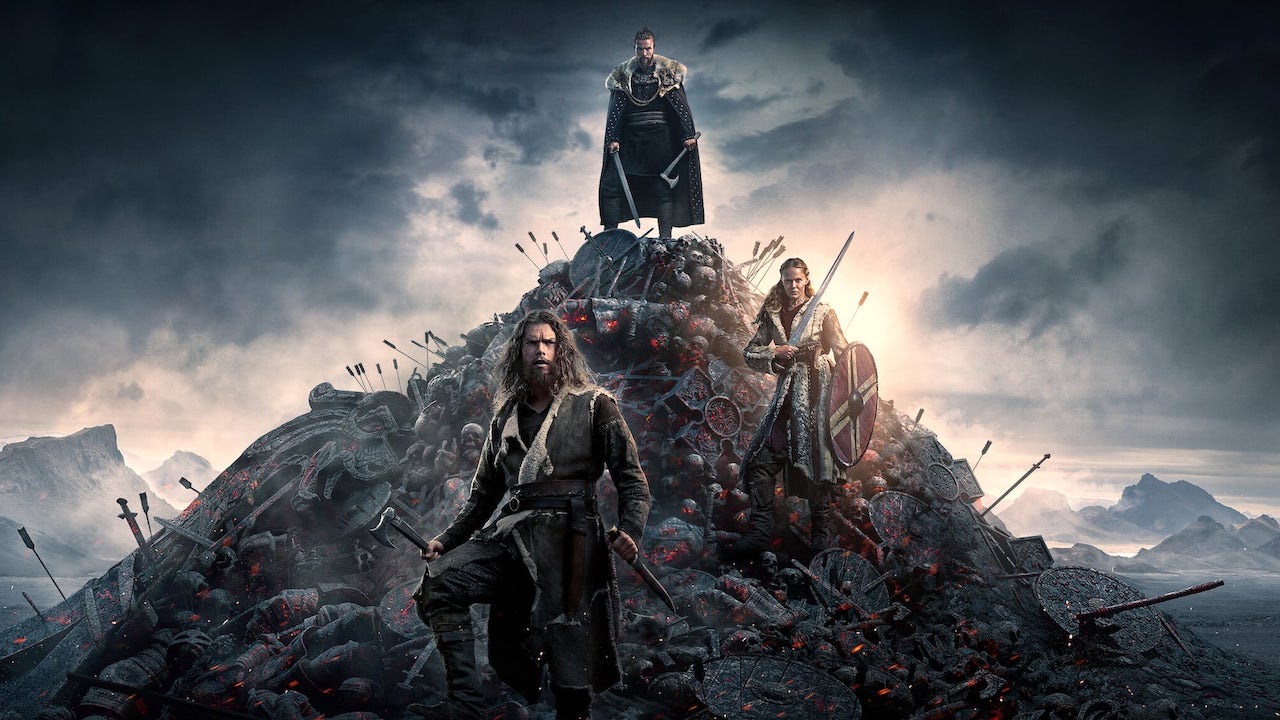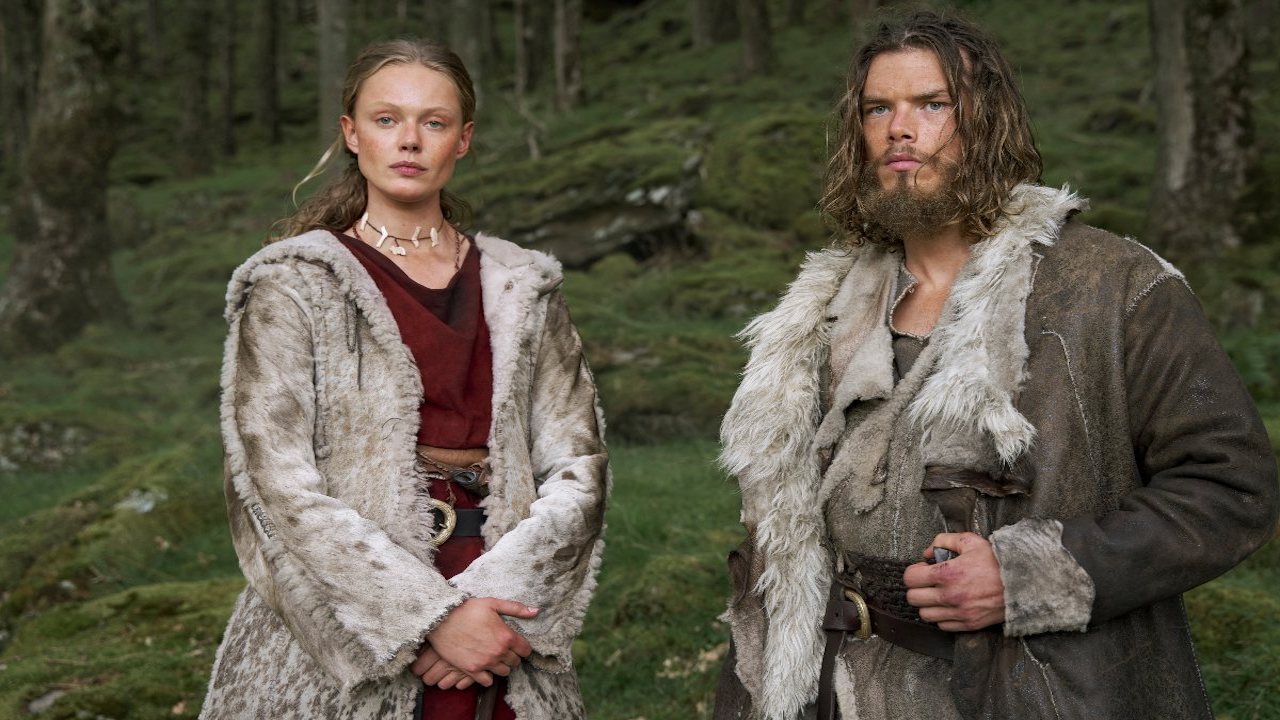Vikings: Valhalla offers beardy blokes, bloody battles, and not much else

Is it possible to enjoy too much bloodthirsty middle ages action? Travis Johnson says so, after finding the first season of Vikings: Valhalla to be somewhat directionless.
Some men are very, very concerned about length. Length of fight scenes, I mean—get your mind out of the gutter. For some—and I often number myself among them, so no shade intended—the ratio of carnage to running time is one of the paramount critical criteria. Those folks will likely be well-pleased by Vikings: Valhalla, a sequel series to The History Channel’s Vikings.
In theory, Vikings: Valhalla depicts a number of battles over the course of its first season’s eight episodes, but you could be forgiven for thinking it was just one long, extended scrap; with scenes of big, burly lads hacking each other to pieces on the battlefield, intercut with scenes of big burly lads scheming in torchlit castle chambers, just for variety.
In the show’s defence, it’s set in a time of vast and frequently bloody political and cultural upheaval at the tail end of the Viking Age, long after the events of its parent series (times of peace being not much use as narrative fodder here). Vikings have lived in Anglo-Saxon Britain for years when the series kicks off in November 1002, living in an area called the Danelaw because it was ruled by—you guessed it—Danish Law. This does not sit well with English King Aethelred the Unready (Bosco Hogan), who orders the slaughter of all the Norse living on his patch.
Known to history as St Brice’s Day Massacre, this carnage does not sit well with any Viking, particularly King Canute (Bradley Freegard), who quickly gathers a large, multinational Viking Army on the continent with the sole aim of putting all of England to the torch. To his banner flock Greenlanders Leif Erikson (Aussie Sam Corlett) and his warrior sister Freydís Eiríksdóttir (MVP Frida Gustavsson); ambitious noble Harald Sigurdsson (Leo Suter); and a horde of fur-clad fighters determined to leave no inch of English soil blood-free. Soon an armada of longships is sailing…

Which sounds pretty good! And the extended fight sequences (or sequence, singular) are a bloodthirsty blast. In its broad strokes the courtly cut-and-thrust is engaging, as questions of lineage, heredity, and the right to rule smack up against certain characters’ penchant for a perfectly timed dagger-thrust to cut through the diplomatic tangle.
What’s really interesting, however, are the questions of religion the series attempts to tackle. Christianity is waxing, the Old Gods are waning, and a good number of Canute’s potential footsoldiers are Christians under the command of Olaf Haraldsson (Jóhannes Haukur Jóhannesson). He wants serious religious concessions in exchange for fighting—like, say, all of Canute’s men being forcibly converted (this is the historical Saint Olaf by the way, Golden Girls fans).
Back in Norway, bloodthirsty Christian fanatic Jarl Kåre (Asbjørn Krogh Nissen) is murdering pagan pilgrims as they make their way to the holy city of Uppsala, just to drive the point home. But to my modern mind the expansionist, sword-or-the-book Christians aren’t necessarily much worse than the raping, pillaging, and human-sacrificing Norse, no matter how much we’re encouraged by the text to think otherwise.

It would all be stronger, perhaps, if we had a clear protagonist to follow, but while Valhalla offers many potential candidates to fill former lead Travis Fimmel’s fur boots, none really cut the mustard. Nominal leading man Sam Corlett is hamstrung by the fact that while his historical character does some amazing stuff down the track, he’s just one of the hirsute horde here. Frida Gustavsson is the most arresting performer out of the whole ensemble but seems to be relegated to supporting status for the foreseeable future.
Everyone else, a few exceptions aside, is doing a variation on a theme to greater or lesser effect, and your beard identification skills are going to need to be top notch to parse who’s who and who’s betraying who at any given time. While the complexities of dynastic wheeling and dealing are handled well, one of the fundamentals of good storytelling is absent: a main character to engage with.
Vikings: Valhalla may be a case of too much action, not enough drama—a rare problem for a genre offering, but it does happen from time to time. If you’re just here to up the historical combat quotient in your screen diet, have at it. But don’t expect much else.




















